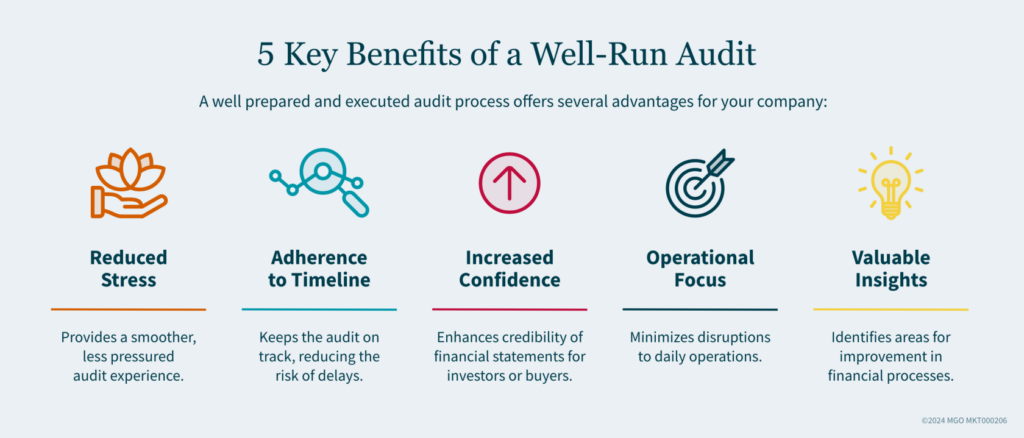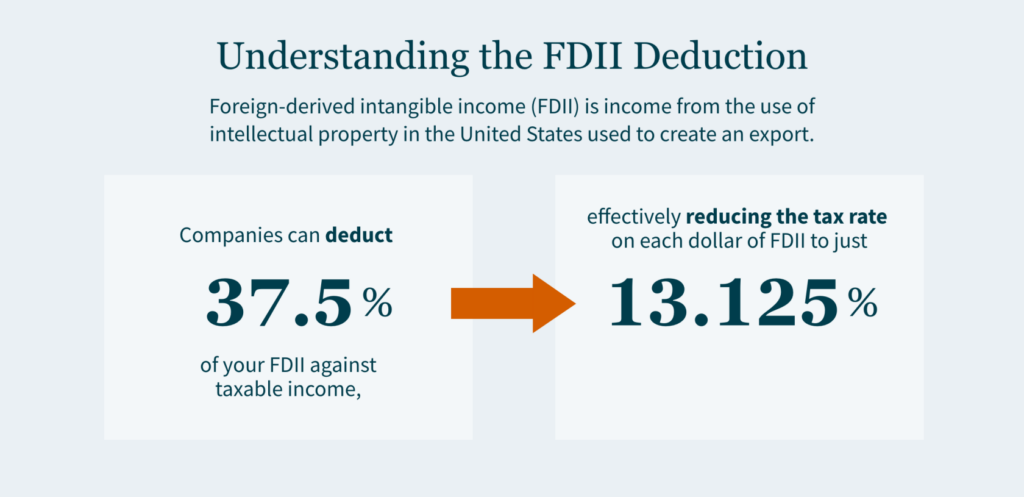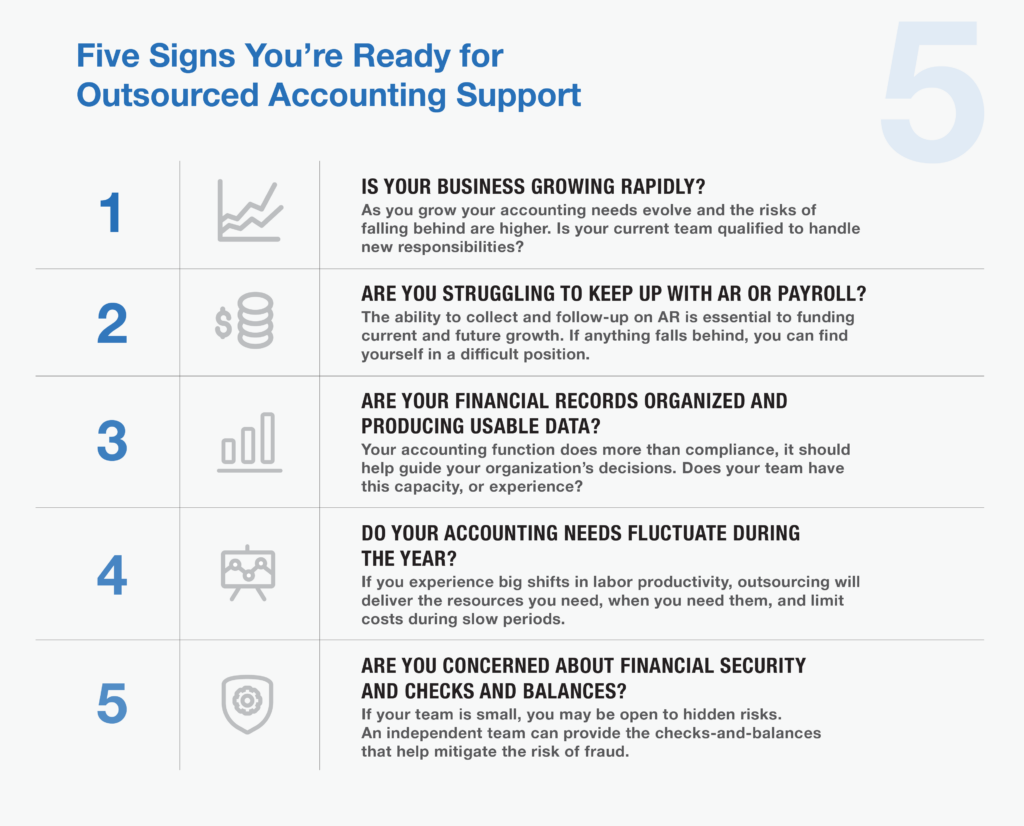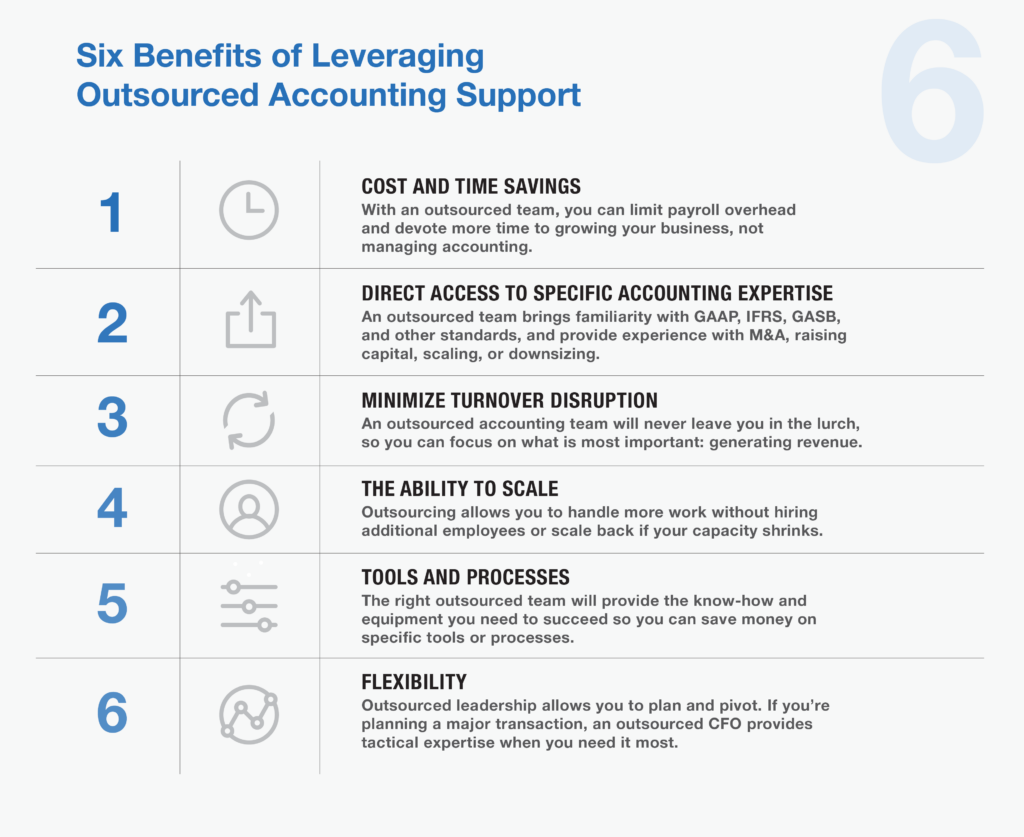Key Takeaways
- CFOs now have a significant concern: the lack of qualified accounting professionals. Outsourcing is quickly emerging as a valuable solution to bridge talent gaps and reduce overall overhead costs.
- Outsourcing enables companies to improve efficiency, scale resources, and leverage others’ knowledge and experience — especially for “non-core” tasks or during periods of transition, like initial public offerings (IPOs) or mergers and acquisitions (M&As).
- Relying on external professionals means they focus on selecting, integrating, and managing those tools effectively while you run your business.
~
C-level executives today face crucial accounting and finance challenges, including the ongoing shortage of accounting professionals, the struggle to keep up with technology (including AI), and the generally inflationary cost environment. While it may be tempting to view the finance and accounting (F&A) function as an overhead expense to be managed, this approach severely underestimates the F&A function’s strategic impact on business operations. Outsourcing can play a critical role in optimizing the performance and cost of the F&A function, especially when its use is tailored to the company’s specific needs.
Today’s Common Accounting Staff Concerns
According to BDO’s 2024 CFO Outlook Survey, 36% of CFO respondents consider the current talent shortage a pervasive risk to their business. A lack of qualified, experienced staff can significantly impede business operations and long-term planning, making staffing concerns a serious threat at any point in the company’s life cycle — from budding start-up to mature company. External accounting professionals can help fill the gaps.
Outsourcing can effectively augment a company’s current staff, providing much-needed support. Leveraging external accounting professionals can empower companies to meet their accounting and finance demands while avoiding some of the overhead costs associated with full-time, permanent employees. This approach can give the business the flexibility to scale accounting resources while filling any talent gaps, especially during situations where additional accounting and finance support is needed.
Lack of scale can also be a driving factor to outsource some or all of a company’s accounting and finance functions. Rising labor costs have made maintaining a robust in-house team more challenging than ever. Outsourcing critical functions that do not absorb the full capacity of a staff can be a great way to leverage the advantage of “fractional ownership.” Leveraging an outsource provider for those functions allows the company to experience best-in-class output without the waste associated with underutilized employees.
Accounting and financial outsourcing can offer a dynamic, flexible solution that enhances a company’s ability to meet its reporting requirements, improve operational efficiency, and strengthen financial planning and analysis. But today’s environment also relies heavily on technology-driven opportunities.
Keeping Up with Technology
How should companies use tech — which sometimes seems to change at the speed of light — to handle accounting and finance functions? Companies can leverage technology solutions to enhance their accounting and finance functions, driving efficiency and accuracy while freeing up valuable resources for strategic initiatives.
Finding tech solutions that deliver the best results for accounting and finance is a first step. From cloud-based accounting platforms to advanced analytics tools, the right technology can revolutionize how financial data is used for the company’s benefit by streamlining processes, enhancing data accuracy and analysis, and providing real-time insights.
But identifying and supporting such technology can be daunting, especially if done alone.
To choose and implement the best solutions, companies may need help with tech enablement from outside sources. External accounting professionals can provide valuable guidance in many areas, including:
- Selecting the right tools,
- Integrating them with existing systems,
- Training staff to use them effectively, and
- Avoiding common pitfalls.
Generative AI is one of the most exciting advancements in tech. For accounting and finance teams, AI can significantly improve efficiency by automating routine tasks, such as data entry and reconciliation, and providing predictive insights that inform strategic decision-making. Companies may also enhance their compliance capabilities by using AI to address anomalies and risks proactively instead of reactively. However — and this is important — the “human” touch is necessary when using AI, and external professionals can bolster the AI results as well as provide training for internal staff.
External accounting and finance professionals often can provide proprietary tech solutions including automation and advanced analytics tailored to the company’s specific facts and circumstances.
Accounting Outsourcing Scenarios
When should companies consider alternatives to traditional in-house accounting? The short answer — any point in the business life cycle.
For startups, tapping into the experience and knowledge of an outside firm can be the most cost-effective and efficient way to begin. Building an in-house accounting team may be fiscally difficult for a new venture, but operating without a robust accounting function can leave the company vulnerable. Outsourcing accounting tasks brings in experienced professionals who can set up financial systems, offer strategic analysis and advice, and help ensure compliance.
Mature enterprises may find that their accounting and finance processes are falling behind widely accepted practices, including the adoption of innovative technology. They may need to leverage external accounting professionals to update their systems and methods, as well as bridge gaps in staffing.
Companies looking toward a business transition or an exit — think IPO, M&A, or direct sale — will want their finances in good order to attract investors or buyers and be ready when opportunities arise. Outsourcing or augmenting accounting and finance functions can help ensure that financial statements are accurate, transparent, and compliant. Discrepancies and inaccurate financial reporting can discourage investors, buyers, and other stakeholders from proceeding. Additionally, seasoned accounting professionals can provide strategic insights, improve financial efficiency, and ensure adherence to the latest regulatory standards, thereby enhancing the overall value proposition of the company.
How MGO Can Help
No matter what stage of life your business is in, oftentimes in-house accountants are limited to handle only the basics. MGO has a robust outsourced accounting team staffed by CPAs with diverse industry backgrounds and technical specialties. We can provide you with the right-size service you require, so you can focus on the organization’s other needs. Some of the areas we support include day-to-day accounting tasks, complex financial systems projects, regulatory compliance demands, M&A deals, raising capital, and more. Whether you’d like to augment your team or undertake a comprehensive accounting transformation, MGO can help you move your business forward. Reach out to our Client Accounting Solutions team today to learn more.
Written by John Gauffreau, Tony Huckeby and Jared Carollo. Copyright © 2024 BDO USA, P.C. All rights reserved. www.bdo.com












